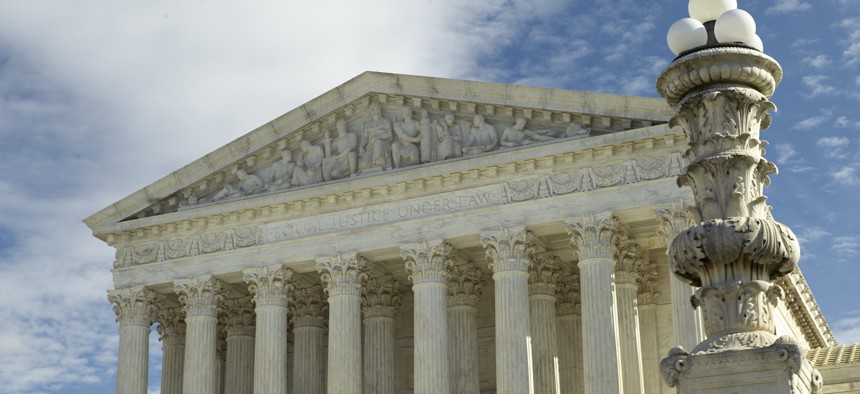Supreme Court Leaves National Eviction Ban in Place

The 5-4 decision allows the moratorium to stay in effect through July 31.
The U.S. Supreme Court on Tuesday issued a ruling allowing a national eviction moratorium to remain in place, rejecting a plea by landlords to strike the ban before it expires next month.
The Centers for Disease Control and Prevention last week extended the moratorium through July 31, indicating it would be the final such extension.
Chief Justice John Roberts and the court’s three liberal members were joined by Justice Brett Kavanaugh in a 5-4 vote to keep the ban in place. The federal moratorium has provided protections for the nation’s 43 million renters by banning landlords from kicking out tenants who were unable to pay rent during the coronavirus pandemic.
A lower court judge had struck down the ban, finding the CDC had overstepped its legal authority in issuing the nationwide moratorium. The decision was stayed however, and the ban remained active while the case was petitioned to the Supreme Court.
Kavanaugh wrote in a brief decision issued Tuesday that he agreed with the lower court ruling, but that the temporary nature of the moratorium swayed his vote.
“Because the CDC plans to end the moratorium in only a few weeks, on July 31, and because those few weeks will allow for additional and more orderly distribution of the congressionally appropriated rental assistance funds, I vote at this time to deny the application to vacate the District Court’s stay of its order,” he wrote.
Were the CDC to attempt to extend the moratorium again, Kavanaugh wrote that congressional authorization would be necessary.
Experts estimate 4 million to 6 million renters are currently behind on rent by several months and are at high risk for eviction when the ban is lifted. Congress approved $47 billion in emergency rent relief programs to help those who had fallen behind on payments get caught up before the eviction ban expires. But state and local governments have had to design rent relief programs from scratch and have been slow to get money out the door. As a result, many jurisdictions report that much of the rent relief money has not been distributed.
The Supreme Court decision is a blow for landlords and realtors, who argued that the moratorium left them to cover mortgages when tenants stopped paying, regardless of the reason, and said it has made it difficult to evict problem tenants.
But attorneys general from 22 states and the District of Columbia supported the moratorium, warning that if it was suddenly struck down the decision would unleash an unprecedented and “catastrophic” wave of evictions.
Andrea Noble is a staff correspondent with Route Fifty.
NEXT STORY: Yes, Some People Really Are Faking Their Covid Vaccine Cards





